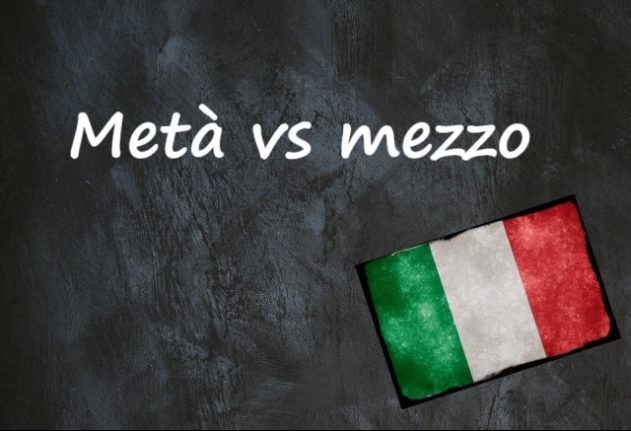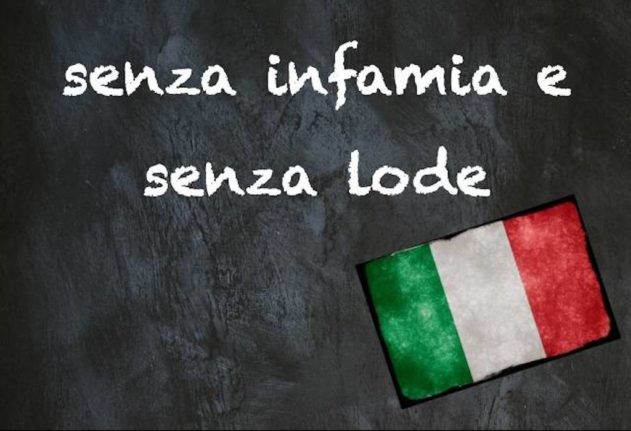It’s often the case in Italy that you’ll find several words that mean something very similar, and it’s not always easy to know which one is appropriate. Our new mini series looks at some of the most common word pairs, and sorts out which should be used and when.
Why do I need to know the difference between metà and mezzo?
Because you’ll need to use both of them in daily conversation if you live in Italy, but the difference in meaning isn’t always clear.
What’s the difference?
When you want to talk about ‘half’ of something in Italian, it may seem as though you have two choices.
Depending on what you’re talking about, you could reach for either metà or mezzo (or mezza, which we’ll come to later) but many language learners say they’re not always sure which one to use in certain situations.
Put simply, the difference between metà and mezzo is much the same as the difference between ‘half’ and ‘middle’ in English.
Metà: a half, as in one of two equal parts of something.
Mezzo: the middle, as in equally distant from two points.
For example:
Ha mangiato metà torta
He ate half of the cake
Facciamo a metà
Let’s split it (in half)
E’ sdraiato in mezzo alla strada
He’s lying in the middle of the street
Non penso che ti dovrebbe mettere in mezzo
I don’t think she should be putting you in the middle of this
READ ALSO: Come stai vs come va
But is anything in Italian ever really that simple?
There are some specific situations where the two words seem to be used interchangeably, or where it’s not clear why one is typically used and not the other.
Confusion arises particularly around telling the time in Italian, as you could say:
Sono le undici e mezzo
It’s half past eleven
Il mio treno arriva alle 5.40: vediamoci dieci minuti prima, alla mezza.
My train arrives at 5.40: let’s meet ten minutes before, at half past.
Why in this case aren’t we using metà for ‘half’? And why is it sometimes mezza rather than mezzo?
The English ‘half past’ doesn’t translate literally into Italian. Mezzo is used here instead, since we’re talking about the ‘middle of’ the hour, the point equally distant between two hours.
This might take some getting used to for English native speakers, but it is pretty logical.
As for why it’s mezza in the second example, this isn’t because it needs to agree with the gender of the noun in the sentence.
In fact, dictionaries tell us it’s always more correct to use mezzo regardless (although many Italians themselves find this rule confusing.)
But, in this case, as the language guardians at Italy’s Accademia della Crusca explain, mezza may (if you prefer) be used instead of mezzo when we already know the time, or at least the hour, being talked about.
So if you had earlier told someone an event would start at 8pm, but it’s now been delayed by half an hour, you could then say:
Comincerà alle otto e mezza
But if you’re inviting someone for the first time, you’d probably stick to:
Alle otto e mezzo
This can be a lot to remember when you’re in the middle of a conversation, but with practice you’ll soon get a feel for which word sounds right in which context.
Do you have an Italian word you’d like us to feature? If so, please email us with your suggestion.
Make sure you don’t miss any of our Italian words and expressions of the day: download our new app (available on Apple and Android) and then selecting the Italian Word of the Day in your Notification options via the User button.



 Please whitelist us to continue reading.
Please whitelist us to continue reading.
None of which explains why Italians call a person who’s half German “mezzo tedesco” (middle German?) instead of metà. Just the way it is…
That’s a great example. I’ve heard both metà and mezzo used in this context. If there is a rule, I’d love to know what it is!